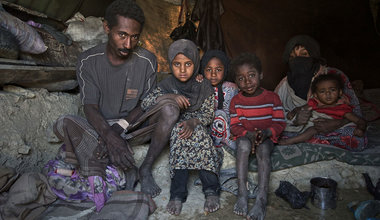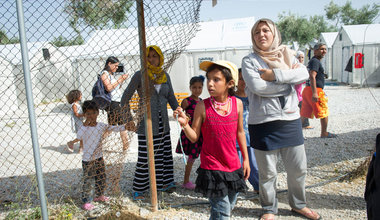Rather than stoke anxiety, politicians should work to improve livelihoods, Canada’s Trudeau tells UN
 Addressing the United Nations General Assembly for the first time, Justin Trudeau, the Prime Minister of Canada, said leaders and politicians should see diversity as strength rather weakness and, instead of exploiting fears, work to allay them by enabling a safer, more peaceful world for all.
Addressing the United Nations General Assembly for the first time, Justin Trudeau, the Prime Minister of Canada, said leaders and politicians should see diversity as strength rather weakness and, instead of exploiting fears, work to allay them by enabling a safer, more peaceful world for all.
Telling the Assembly that he had learned much from speaking with the Canadian people, including young people frustrated by the lack of employment, women still faced with discrimination and parents struggling to give their children opportunities, Mr. Trudeau said that while Canadians still believed in progress, that optimism was mixed with concern – an anxiety shared worldwide.
“Faced with citizens’ anxiety, we have a choice to make. Do we exploit that anxiety or do we allay it? Exploiting it is easy, but, in order to allay it, we need to be prepared to answer some very direct questions,” Mr. Trudeau said. We believe we should confront anxiety with a clear plan to deal with its root causes,” he said, adding: “Fear has never created a single job or fed a single family […] People want their problems solved, not exploited.”
“What will create the good well-paying jobs that people want need and deserve? What will strengthen and grow the middle class and help those working hard to join it?” he said, stressing that leaders should work to allay them by enabling a safer, more peaceful world and creating economic growth that was broadly shared.
For Canada, that also meant reengaging in global affairs through institutions such as the United Nations. Among other things, Canada had helped to negotiate the Paris Agreement, reasserted its support for the North Atlantic Treaty Organization (NATO), strengthened its role in peacekeeping and increased its contribution to the Global Fund to Fight AIDS, Tuberculosis and Malaria, the fifth replenishment conference of which Canada had hosted in Montreal this past weekend.
In Canada, Mr. Trudeau continued, diversity was seen as a source of strength, not weakness. While the country had had had many failures – from the internment of Ukrainian, Japanese and other Canadians during the Second World War, to the shameful marginalization of indigenous peoples – what mattered was that it had learned from its mistakes and was committed to doing better.
To that end, Canada recently opened its arms to thousands of Syrian refugees, welcoming them as neighbours, friends and new Canadians. The Government has been working with the business community, civil society and citizens to help the newcomers adapt. He also pointed out the contrast between middle-class Canadians who struggle with anxieties and middle-class Syrians, who often find themselves living in refugee camps.
Going forward, he said, Canada would continue to invest in education and infrastructure development, while working to build an economy that worked for everyone, not just for the richest 1 per cent. It would refuse to give in to pressure to change its most profound values in order to win votes. Indeed, strong, diverse, resilient countries such as Canada did not happen by accident, and they would not continue without effort. “Every single day, we need to choose hope over fear” and unity over division, he stressed. The citizens of the world were better than what the cynics and pessimists thought of them. “People want their problems solved, not exploited,” he said, calling on the international community to work in concert to those ends.
 ONU
ONU







